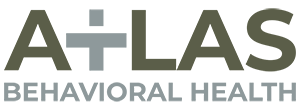Sometimes people drink to relax or have fun. But when someone drinks too much, too often, or can’t stop, it might be a sign of alcohol abuse. It doesn’t always look the same in every person, but the warning signs are real. You’ll learn what to look for and when it’s time to ask for help.
If you’ve ever wondered, “Am I an addict?” or worried about someone close to you, this can be your first step toward understanding and healing.
What Is Alcohol Abuse?
Alcohol abuse means drinking in a way that causes problems. It’s more than just “a few too many.” It could be drinking when you feel sad, drinking to sleep, or not being able to stop once you start. Some people drink every day. Others binge on weekends. Both can be harmful.
The difference between social drinking and alcohol abuse is simple: if alcohol is hurting your health, your relationships, or your responsibilities, it’s a problem.
What Causes Alcohol Abuse?
There’s no single reason people abuse alcohol. For some, it starts with trying to fit in. For others, it’s about coping with trauma, grief, or deep emotional pain. Mental health struggles like anxiety or depression also play a big role.
And yes, some people are more at risk because of family history or genetics.
If you’re using alcohol to numb emotional pain, you’re not alone. Many people don’t realize how closely drinking is tied to untreated mental health issues. If that sounds like you, a mental health facility for depression may be the first place to start healing.
Alcohol Abuse vs. Alcohol Dependence: What’s the Difference?
People often confuse alcohol abuse with alcohol dependence, but they’re not the same. Abuse is when drinking starts to cause problems in your life. Dependence means your body has become used to alcohol, and you may shake, sweat, or feel sick when you don’t drink. Think of it like this:
-
Abuse = “I drink too much, and it’s hurting me.”
-
Dependence = “I need to drink, or I don’t feel okay.”
You don’t have to be dependent on your drinking to be serious. Catching it early, before it turns into dependence, can make recovery easier and safer.
Early Warning Signs of Alcohol Abuse
Not all warning signs look extreme at first. Some people start drinking a little more on weekends. Others drink to calm their nerves after work. But when these habits grow into a pattern, it’s a red flag.
You might notice:
-
Needing more drinks to feel the same
-
Drinking alone or hiding it
-
Using alcohol to sleep, relax, or escape stress
These signs often show up before things get worse. Paying attention early can make all the difference.
Physical Symptoms to Watch For
Alcohol doesn’t just affect your thoughts, it affects your body too. Some physical signs are easy to spot, like slurred speech or a red face. Others are slower, like weight changes or constant fatigue.
In the middle of it all, your body sends messages: hangovers that hit harder, memory blackouts, or shaking hands in the morning. If any of this feels familiar, it’s time to pause.
Getting help before your body breaks down is key. That’s why our treatment center in Atlanta focuses on healing both the mind and body.
Behavioral & Emotional Red Flags
At first, alcohol might seem like it helps with emotions, but over time, it makes things worse. Mood swings, anger, or depression can become stronger. People may stop showing up for work or cancel plans without a reason.
You may notice:
-
Avoiding loved ones
-
Arguing more often
-
Losing interest in things you used to enjoy
And if you’re feeling emotionally stuck, exploring vulnerability in recovery might help you understand what’s really going on underneath the surface.
How Alcohol Abuse Impacts Loved Ones
Alcohol abuse doesn’t just affect the person drinking, it affects everyone around them. Partners, children, and friends often carry invisible stress. They may worry constantly, walk on eggshells, or feel helpless watching someone they love struggle.
You might hear phrases like:
-
“They’re different when they drink.”
-
“I don’t know who I’m going to get today.”
-
“I feel like I’ve lost them.”
It’s painful, but honest conversations and healthy boundaries can start the healing process. Even small changes can shift the whole household toward recovery.
Why Many Delay Getting Help
Fear is one of the biggest reasons people wait. Fear of being judged, fear of losing control, or fear of admitting something’s wrong. Others convince themselves they’re “not that bad” or that they can quit anytime.
In the middle of all this is denial, sometimes strong enough to block reality. That’s why learning to embrace vulnerability can be a turning point. Asking for help doesn’t mean you’re weak. It means you’re ready to get honest, and that takes strength.
Alcohol Withdrawal: What to Expect When You Stop
Stopping alcohol suddenly can shock your body. Shakes, sweating, anxiety, and trouble sleeping are common. For some, it gets dangerous, seizures, hallucinations, or high blood pressure can happen within hours.
Because of this, detoxing alone is risky. A medically supervised program can help you stay safe while your body resets.
If you’re exploring detox options, our guide on how to detox safely explains what professional care can look like, even though it’s focused on meth, the process is just as important for alcohol withdrawal.
When Is the Right Time to Seek Help?
The truth? If you’re asking this question, the time might be now. Many people wait until things fall apart, but you don’t have to hit rock bottom to get support. If alcohol is affecting your mood, health, or relationships, that’s enough reason to reach out.
Sometimes, just taking a quiz or talking to someone you trust can give you clarity. At Atlas Behavioral Health, we remind people every day: the earlier you act, the easier it is to heal. Don’t wait for a crisis, your turning point can start today.
How to Get Help (Even If You’re Scared)
Getting help starts with a simple step: talking. You can start with a doctor, a friend, a counselor, or even send a message online. You don’t need to have all the answers. Just being willing to ask a question is enough.
In the middle of fear, action brings relief. Whether it’s a phone call or a support group, your next step doesn’t have to be perfect, it just has to happen. To learn more about your options and what others are doing, browse our recovery blog for ideas, stories, and guidance that make it all feel less scary.
Treatment Options for Alcohol Abuse
There’s no one-size-fits-all solution for alcohol abuse. Some people need inpatient rehab. Others do well with outpatient care, where they can live at home while getting help. You can also try:
-
Group therapy (like AA or SMART Recovery)
-
Cognitive behavioral therapy (CBT)
-
Holistic approaches like mindfulness, nutrition, or fitness routines
Support should match your life, not make it harder. Recovery doesn’t mean stopping life. It means building a life that doesn’t need alcohol to survive.
What Recovery Really Looks Like
Recovery doesn’t happen in one day, it happens one day at a time. Some days are hard. Some feel hopeful. The important part is that you’re moving forward, even if it’s slow.
In recovery, you’ll learn how to handle stress without alcohol. You’ll rebuild trust with others and confidence in yourself. There may be slip-ups along the way; that’s normal. What matters is how you respond. With the right support, setbacks can become stepping stones.
Recovery isn’t about being perfect. It’s about choosing a better path, again and again.
Self-Test: Could This Be Alcohol Abuse?
Not sure if your drinking is a problem? Ask yourself:
-
Do I drink more than I plan to?
-
Have I tried to stop but couldn’t?
-
Do I feel guilty about my drinking?
-
Have loved ones expressed concern?
-
Is alcohol causing trouble at work, school, or home?
If you answered “yes” to two or more questions, it might be time to talk to someone. Taking this step doesn’t mean you’re broken. It means you care enough to check in with yourself, and that’s powerful.
Conclusion
You don’t have to wait for things to get worse. You don’t have to feel completely lost to ask for help. In fact, reaching out is one of the strongest things you can do.
If you or someone you love is struggling, there is a way forward. Our team at Atlas Behavioral Health is here to walk with you, no matter where you are in the journey.
The first step is the hardest, but you’re already closer than you think.





